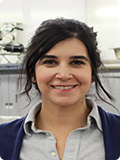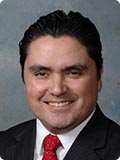Pulse Science and Technology Forum Speaker Biographies
An international symposium on analysis, nutrition and applications of plant proteins
 Dr. Yongfeng Ai is an Assistant Professor and Saskatchewan Ministry of Agriculture Endowed Research Chair in Carbohydrate Quality and Utilization in the Department of Food and Bioproduct Sciences at the University of Saskatchewan. The primary goal of his Carbohydrate Chemistry and Utilization Program is to promote value-added utilization of carbohydrates in foods, feeds and bioproducts.
Dr. Yongfeng Ai is an Assistant Professor and Saskatchewan Ministry of Agriculture Endowed Research Chair in Carbohydrate Quality and Utilization in the Department of Food and Bioproduct Sciences at the University of Saskatchewan. The primary goal of his Carbohydrate Chemistry and Utilization Program is to promote value-added utilization of carbohydrates in foods, feeds and bioproducts.
Specific research areas include:
Chemical, physical and enzymatic modifications of starch and other carbohydrates for novel industrial applications
Development of resistant starch, dietary fiber, and low-glycemic foods and feeds to improve the health of humans and animals
Use of novel processing methods to enhance functional properties and nutritional quality of carbohydrates in pulses and cereal grains
 Gordon Bacon is CEO for Pulse Canada and CEO of the Canadian Special Crops Association (CSCA). Pulse Canada is the national industry association that represents growers, processors and exporters of Canadian peas, lentils, beans and chickpeas. Pulse Canada works to ensure that food and ingredient companies around the world recognize Canadian pulses as healthy, sustainable and with the functional characteristics needed for a wide range of foods.
Gordon Bacon is CEO for Pulse Canada and CEO of the Canadian Special Crops Association (CSCA). Pulse Canada is the national industry association that represents growers, processors and exporters of Canadian peas, lentils, beans and chickpeas. Pulse Canada works to ensure that food and ingredient companies around the world recognize Canadian pulses as healthy, sustainable and with the functional characteristics needed for a wide range of foods.
Direction and funding for Pulse Canada comes from provincial growers groups and from the pulse processors and exporters through their membership in the CSCA.
Before joining Pulse Canada in 1997 Gordon was Director of Market Development at the Canadian Wheat Board. He has also served as Senior Policy Advisor to the Minister of State Grains and Oilseeds in Ottawa, and in various roles with federal and provincial governments across Canada.
 Joseph L. Baumert, Ph.D., currently serves as an Associate Professor in the Department of Food Science & Technology and Co-Director of the Food Allergy Research & Resource Program (FARRP) at the University of Nebraska. Dr. Baumert received his Ph.D. in food science and technology at the University of Nebraska-Lincoln specializing in food allergy research. He maintains active national and international research and extension programs. His research interests include identification and characterization of novel food allergens, examination of the digestive stability of major food allergens, development and improvement of analytical methods for detection of allergenic food proteins, and development of quantitative risk assessment models for food allergens. Extension activities include outreach and training for food industry on allergen control solutions and processing plant sanitation, expert consultation to help minimize the risk of allergen cross-contact, and quantitative risk assessment consultation.
Joseph L. Baumert, Ph.D., currently serves as an Associate Professor in the Department of Food Science & Technology and Co-Director of the Food Allergy Research & Resource Program (FARRP) at the University of Nebraska. Dr. Baumert received his Ph.D. in food science and technology at the University of Nebraska-Lincoln specializing in food allergy research. He maintains active national and international research and extension programs. His research interests include identification and characterization of novel food allergens, examination of the digestive stability of major food allergens, development and improvement of analytical methods for detection of allergenic food proteins, and development of quantitative risk assessment models for food allergens. Extension activities include outreach and training for food industry on allergen control solutions and processing plant sanitation, expert consultation to help minimize the risk of allergen cross-contact, and quantitative risk assessment consultation.
 Since he got his PhD in Biochemistry and Food Science, specialized in lipids, from the University of Bordeaux, France, Frédéric has served multiple scientific and management roles with Roquette, spanning over the science and technology of plant-based ingredients for food, nutrition, and health but also for industrial applications.
Since he got his PhD in Biochemistry and Food Science, specialized in lipids, from the University of Bordeaux, France, Frédéric has served multiple scientific and management roles with Roquette, spanning over the science and technology of plant-based ingredients for food, nutrition, and health but also for industrial applications.
During the first part of his career, Frédéric managed a research group focused on characterization of food and industrial material structure (rheology, thermal analysis, microscopy). After several years supporting the development of a wide range of industrial applications of starches, he moved back to food science and was deeply involved in innovation projects dealing with lipids and proteins from microalgae, for food, nutrition, and health, in Asia and the USA where he relocated during a few years. Back to France, Frédéric led different projects aiming at identifying and developing valuable proteins and fibers, which are currently part of side-products from the industrial processing of pea, corn, wheat, and potatoes.
As science & technology advisor, Frédéric supports the extension of the plant-based ingredients range of Roquette, particularly the proteins and the fibers, taking into account processing technologies but also nutritional properties. He is very involved in open innovation and technology scouting.
 Dr. Joyce Boye is the Prairie Region Director General of Agriculture and Agri-Food Canada's Science and Technology Branch. She has a Bachelor's degree in Chemical Engineering and a Ph. Din Food Science (Dean's Honor List). From 1997 to 2014, she worked as Senior Research Scientist at the AAFC Food Research and Development Centre (RDC) in St. Hyacinthe, Quebec, where she led a variety of research projects focused on developing techniques for the isolation, extraction and characterization of proteins and other bioactives from plant sources (e.g., pulses, soybeans, canola, hemp, canaryseed), and identifying areas of application for the food industry. More recently, she served as Director of AAFC's two RDCs in British Columbia. Internationally, she served as a member of the World Bank Agricultural Pull Mechanism Initiative Working Group on Nutrition; as a Visiting Expert for the Food and Agriculture Organization of the United Nations (UN FAO); and, in 2016, she was appointed Special Ambassador for North America for the International Year of Pulses by the UN FAO. Dr. Boye has co-edited three books and has written and presented over 320 scientific and technical papers/reports/lectures and is senior author/co-author of 28 book chapters.
Dr. Joyce Boye is the Prairie Region Director General of Agriculture and Agri-Food Canada's Science and Technology Branch. She has a Bachelor's degree in Chemical Engineering and a Ph. Din Food Science (Dean's Honor List). From 1997 to 2014, she worked as Senior Research Scientist at the AAFC Food Research and Development Centre (RDC) in St. Hyacinthe, Quebec, where she led a variety of research projects focused on developing techniques for the isolation, extraction and characterization of proteins and other bioactives from plant sources (e.g., pulses, soybeans, canola, hemp, canaryseed), and identifying areas of application for the food industry. More recently, she served as Director of AAFC's two RDCs in British Columbia. Internationally, she served as a member of the World Bank Agricultural Pull Mechanism Initiative Working Group on Nutrition; as a Visiting Expert for the Food and Agriculture Organization of the United Nations (UN FAO); and, in 2016, she was appointed Special Ambassador for North America for the International Year of Pulses by the UN FAO. Dr. Boye has co-edited three books and has written and presented over 320 scientific and technical papers/reports/lectures and is senior author/co-author of 28 book chapters.
 Denis Chéreau holds a Ph.D. in microbiology (production of single-cell protein by solid-state fermentation). After 15 years in the production and marketing of enzymes, he moved for 14 years in the starch industry as technical and plant manager in France and the USA. He is currently general manager of IMPROVE, an R&D centre expert in proteins valorization. With 22 people IMPROVE brings a range of expertise including food science, nutrition, processing technologies, scale-up & engineering. In 10 000 ft² pilot hall it is possible to make dry or wet fractionation of a very wide range of raw material (seeds, leaves, algae, co-products, microorganisms, insects…). Labs are focusing on samples characterization (composition, functional properties, invite digestibility, organoleptic profile).
Denis Chéreau holds a Ph.D. in microbiology (production of single-cell protein by solid-state fermentation). After 15 years in the production and marketing of enzymes, he moved for 14 years in the starch industry as technical and plant manager in France and the USA. He is currently general manager of IMPROVE, an R&D centre expert in proteins valorization. With 22 people IMPROVE brings a range of expertise including food science, nutrition, processing technologies, scale-up & engineering. In 10 000 ft² pilot hall it is possible to make dry or wet fractionation of a very wide range of raw material (seeds, leaves, algae, co-products, microorganisms, insects…). Labs are focusing on samples characterization (composition, functional properties, invite digestibility, organoleptic profile).
 Alison Duncan is a Professor and Associate Director of Research at the Human Nutraceutical Research Unit, in the Department of Human Health and Nutritional Sciences at the University of Guelph. She also currently serves as the Research Program Director for the Food for Health theme of the Ontario Agri-Food Innovation Alliance. Alison’s academic training is all in nutrition with an undergraduate degree in Applied Human Nutrition from the University of Guelph, training to become a Registered Dietitian at Sunnybrook Health Sciences Centre, a M.Sc. in Nutritional Sciences from the University of Toronto and a Ph.D. in Nutritional Sciences from the University of Minnesota. Her teaching and research relate to the biological effects of functional foods (including pulses) on chronic disease-related endpoints evaluated in human intervention studies, with a particular focus on the agri-food-health continuum. Alison has served on grant review panels, reviews manuscripts for several journals on a regular basis, has given many presentations at conferences and community groups, and currently serves on the editorial board for the Journal of Nutrition and the Board of Directors for the Canadian Nutrition Society.
Alison Duncan is a Professor and Associate Director of Research at the Human Nutraceutical Research Unit, in the Department of Human Health and Nutritional Sciences at the University of Guelph. She also currently serves as the Research Program Director for the Food for Health theme of the Ontario Agri-Food Innovation Alliance. Alison’s academic training is all in nutrition with an undergraduate degree in Applied Human Nutrition from the University of Guelph, training to become a Registered Dietitian at Sunnybrook Health Sciences Centre, a M.Sc. in Nutritional Sciences from the University of Toronto and a Ph.D. in Nutritional Sciences from the University of Minnesota. Her teaching and research relate to the biological effects of functional foods (including pulses) on chronic disease-related endpoints evaluated in human intervention studies, with a particular focus on the agri-food-health continuum. Alison has served on grant review panels, reviews manuscripts for several journals on a regular basis, has given many presentations at conferences and community groups, and currently serves on the editorial board for the Journal of Nutrition and the Board of Directors for the Canadian Nutrition Society.
 Dr. House is Professor and Head (since 2009) of the Department of Food and Human Nutritional Sciences, University of Manitoba. He completed his Ph.D. in amino acid nutrition and metabolism from the University of Guelph in 1996. From 1996-98, Jim worked as a post-doctoral fellow in the Department of Biochemistry at Memorial University of Newfoundland, where he was the recipient of a Medical Research Council of Canada Fellowship in 1998. In the fall of 1998, he joined the University of Manitoba. Jim has received the young investigator awards from the Canadian Society of Animal Science (CSAS) and the Canadian Society for Nutritional Sciences. He has maintained research programs in 3 primary areas: 1) understanding factors regulating sulphur amino acid metabolism in animals; 2) developing functional foods of animal origin, with particular emphasis on egg science; and 3) determining factors influencing the quality of dietary proteins. Dr. House is Past-President for the Canadian Nutrition Society. Additionally, he serves on the Canadian Advisory Council of ILSI North America, and the Editorial Board of J AOAC International. His research program is funded via NSERC Discovery Grants, as well as numerous tripartite funding programs involving industry and government partners.
Dr. House is Professor and Head (since 2009) of the Department of Food and Human Nutritional Sciences, University of Manitoba. He completed his Ph.D. in amino acid nutrition and metabolism from the University of Guelph in 1996. From 1996-98, Jim worked as a post-doctoral fellow in the Department of Biochemistry at Memorial University of Newfoundland, where he was the recipient of a Medical Research Council of Canada Fellowship in 1998. In the fall of 1998, he joined the University of Manitoba. Jim has received the young investigator awards from the Canadian Society of Animal Science (CSAS) and the Canadian Society for Nutritional Sciences. He has maintained research programs in 3 primary areas: 1) understanding factors regulating sulphur amino acid metabolism in animals; 2) developing functional foods of animal origin, with particular emphasis on egg science; and 3) determining factors influencing the quality of dietary proteins. Dr. House is Past-President for the Canadian Nutrition Society. Additionally, he serves on the Canadian Advisory Council of ILSI North America, and the Editorial Board of J AOAC International. His research program is funded via NSERC Discovery Grants, as well as numerous tripartite funding programs involving industry and government partners.
 Dr. Sijo Joseph is a Cereal Nutrition Research Scientist with Agriculture and Agri-Food Canada located at the Richardson Centre for Functional Foods and Nutraceuticals in Winnipeg, Manitoba. Dr. Joseph completed his MSc (Biotechnology) in India and received his Ph.D. (Physiology) from the University of Manitoba (2012). Dr. Joseph’s research program is primarily focused on the assessment of nutritional and functional quality of cereal grains such as wheat, barley, oats and certain pulses. He also works towards developing novel technologies to effectively predict the physiological efficacy of cereal functional components such as protein, fibre, carbohydrate, polyphenols, etc. He is currently an Adjunct Professor in the Department of Human Nutritional Sciences at the University of Manitoba and serves as editor in multiple research journals.
Dr. Sijo Joseph is a Cereal Nutrition Research Scientist with Agriculture and Agri-Food Canada located at the Richardson Centre for Functional Foods and Nutraceuticals in Winnipeg, Manitoba. Dr. Joseph completed his MSc (Biotechnology) in India and received his Ph.D. (Physiology) from the University of Manitoba (2012). Dr. Joseph’s research program is primarily focused on the assessment of nutritional and functional quality of cereal grains such as wheat, barley, oats and certain pulses. He also works towards developing novel technologies to effectively predict the physiological efficacy of cereal functional components such as protein, fibre, carbohydrate, polyphenols, etc. He is currently an Adjunct Professor in the Department of Human Nutritional Sciences at the University of Manitoba and serves as editor in multiple research journals.
 Dr. Filiz Koksel is an Assistant Professor in Food Processing within the Department of Food and Human Nutritional Sciences at the University of Manitoba. She specializes in processing of foods and food ingredients, especially those from cereals and pulses. Her research expertise includes improvement and utilization of novel techniques (e.g., X-ray microtomography, low-intensity ultrasound) to understand the mechanical properties of foods and food microstructure, heat and mass transfer operations during food processing, food processing (e.g., mixing, extrusion, baking, fermentation), physical and techno-functional properties of plant-based food ingredients.
Dr. Filiz Koksel is an Assistant Professor in Food Processing within the Department of Food and Human Nutritional Sciences at the University of Manitoba. She specializes in processing of foods and food ingredients, especially those from cereals and pulses. Her research expertise includes improvement and utilization of novel techniques (e.g., X-ray microtomography, low-intensity ultrasound) to understand the mechanical properties of foods and food microstructure, heat and mass transfer operations during food processing, food processing (e.g., mixing, extrusion, baking, fermentation), physical and techno-functional properties of plant-based food ingredients.
 John McDermott joined International Food Policy Research Institute (IFPRI) in late 2011 to lead the CGIAR Research Program on Agriculture for Nutrition and Health (A4NH), led by IFPRI. He has an established record in research leadership and management and in epidemiology and public health research. Previously he was deputy director general and director of research at the International Livestock Research Institute (ILRI). As a researcher, McDermott’s research career has focused on public health, animal health and livestock research in developing countries, primarily Africa. He has led projects on zoonotic and emerging diseases in Asia and Africa. McDermott has a strong background in quantitative methods (modeling, study design, statistics). He has authored or co-authored 200 peer-reviewed publications, book chapters and conference papers, advised over 30 post-graduate students, including 20 PhD graduates and served as an advisor to FAO, WHO, OIE, and other international agencies.
John McDermott joined International Food Policy Research Institute (IFPRI) in late 2011 to lead the CGIAR Research Program on Agriculture for Nutrition and Health (A4NH), led by IFPRI. He has an established record in research leadership and management and in epidemiology and public health research. Previously he was deputy director general and director of research at the International Livestock Research Institute (ILRI). As a researcher, McDermott’s research career has focused on public health, animal health and livestock research in developing countries, primarily Africa. He has led projects on zoonotic and emerging diseases in Asia and Africa. McDermott has a strong background in quantitative methods (modeling, study design, statistics). He has authored or co-authored 200 peer-reviewed publications, book chapters and conference papers, advised over 30 post-graduate students, including 20 PhD graduates and served as an advisor to FAO, WHO, OIE, and other international agencies.
As a research leader, McDermott has played a pivotal role in research for development innovations, including the establishment of the Biosciences East and Central Africa hub and the Global Alliance for Livestock Veterinary Medicines.
 Dr. Messina is the co-owner of Nutrition Matters, Inc., a nutrition consulting company, an adjunct associate professor at Loma Linda University, and the Executive Director of the Soy Nutrition Institute. He is a former program director with the National Cancer Institute (NCI). While at the NCI he initiated a multi-million-dollar research program on the anticancer effects of soy. Over the past three decades, Dr. Messina has devoted his time to the study of the health effects of soyfoods and soybean components. He writes extensively on these subjects, having published more than 100 articles and book chapters for health professionals, and has given more than 600 presentations to both consumer and professional groups in 54 countries. Dr. Messina is the chairperson of the editorial advisory board and writes a regular column for The Soy Connection, a quarterly newsletter that reaches over 250,000 dietitians and other health professionals. He has also organized and chaired nine international symposia on the role of soy in preventing and treating chronic disease and has organized ten meetings in the United States, China, India, Brazil, and Italy.
Dr. Messina is the co-owner of Nutrition Matters, Inc., a nutrition consulting company, an adjunct associate professor at Loma Linda University, and the Executive Director of the Soy Nutrition Institute. He is a former program director with the National Cancer Institute (NCI). While at the NCI he initiated a multi-million-dollar research program on the anticancer effects of soy. Over the past three decades, Dr. Messina has devoted his time to the study of the health effects of soyfoods and soybean components. He writes extensively on these subjects, having published more than 100 articles and book chapters for health professionals, and has given more than 600 presentations to both consumer and professional groups in 54 countries. Dr. Messina is the chairperson of the editorial advisory board and writes a regular column for The Soy Connection, a quarterly newsletter that reaches over 250,000 dietitians and other health professionals. He has also organized and chaired nine international symposia on the role of soy in preventing and treating chronic disease and has organized ten meetings in the United States, China, India, Brazil, and Italy.
 Dr. Sievenpiper is a Clinician Scientist who holds appointments as an Associate Professor in the Department of Nutritional Sciences and the Lifestyle Medicine Lead in the MD Program at the University of Toronto. He also holds appointments as a Staff Physician in the Division of Endocrinology & Metabolism and Scientist in the La Ka Shing Knowledge Institute at St. Michael’s Hospital. Dr. Sievenpiper completed his MSc, PhD and Postdoctoral Fellowship training in the Department of Nutritional Sciences at the University of Toronto. He completed his MD at St. Matthew’s University followed by Residency training in Medical Biochemistry at McMaster University leading to his certification as a Fellow of the Royal College of Physicians of Canada (FRCPC). He has established an internationally recognized research program focused on using randomized controlled trials and systematic reviews and meta-analyses to address questions of clinical and public health importance in relation to diet and cardiometabolic disease prevention with a particular interest in the role of sugars, carbohydrate quality, and plant-based dietary patterns. He is directly involved in knowledge translation with appointments to the nutrition guidelines’ committees of Diabetes Canada, European Association for the study of Diabetes (EASD), Canadian Cardiovascular Society (CCS), and the Obesity Canada. He is the recipient of numerous awards including a PSI Foundation Graham Farquharson Knowledge Translation Fellowship, Diabetes Canada Clinician Scientist Award, Banting & Best Diabetes Centre Sun Life Financial New Investigator Award, and CIHR-INMD/CNS– New Investigator Partnership Prize. He has authored more than 170 scientific papers and 13 book chapters.
Dr. Sievenpiper is a Clinician Scientist who holds appointments as an Associate Professor in the Department of Nutritional Sciences and the Lifestyle Medicine Lead in the MD Program at the University of Toronto. He also holds appointments as a Staff Physician in the Division of Endocrinology & Metabolism and Scientist in the La Ka Shing Knowledge Institute at St. Michael’s Hospital. Dr. Sievenpiper completed his MSc, PhD and Postdoctoral Fellowship training in the Department of Nutritional Sciences at the University of Toronto. He completed his MD at St. Matthew’s University followed by Residency training in Medical Biochemistry at McMaster University leading to his certification as a Fellow of the Royal College of Physicians of Canada (FRCPC). He has established an internationally recognized research program focused on using randomized controlled trials and systematic reviews and meta-analyses to address questions of clinical and public health importance in relation to diet and cardiometabolic disease prevention with a particular interest in the role of sugars, carbohydrate quality, and plant-based dietary patterns. He is directly involved in knowledge translation with appointments to the nutrition guidelines’ committees of Diabetes Canada, European Association for the study of Diabetes (EASD), Canadian Cardiovascular Society (CCS), and the Obesity Canada. He is the recipient of numerous awards including a PSI Foundation Graham Farquharson Knowledge Translation Fellowship, Diabetes Canada Clinician Scientist Award, Banting & Best Diabetes Centre Sun Life Financial New Investigator Award, and CIHR-INMD/CNS– New Investigator Partnership Prize. He has authored more than 170 scientific papers and 13 book chapters.
 Long-standing position as a researcher and professor at INRA and AgroParisTech. Research interest on protein, amino acid, and energy requirements and on the capacity of protein and amino acid supply by the diet to fulfill their biological functions and meet nutritional needs for human. These research contributed to the understanding of the role of amino acid and energy nutrients on metabolic pathways and control of feeding behavior and provided different criteria and methods for the evaluation of protein and food quality. Also involved during the last 25 years in different committees and working groups from national and international authorities for delivering scientific advice and recommendation for nutrient requirement and food quality particularly related to protein and amino acids.
Long-standing position as a researcher and professor at INRA and AgroParisTech. Research interest on protein, amino acid, and energy requirements and on the capacity of protein and amino acid supply by the diet to fulfill their biological functions and meet nutritional needs for human. These research contributed to the understanding of the role of amino acid and energy nutrients on metabolic pathways and control of feeding behavior and provided different criteria and methods for the evaluation of protein and food quality. Also involved during the last 25 years in different committees and working groups from national and international authorities for delivering scientific advice and recommendation for nutrient requirement and food quality particularly related to protein and amino acids.
 Mehmet Tulbek is the Director of Research and Development at AGT Food and Ingredients Inc. in Saskatoon, Canada. He has over 15 years of experience in cereal, pulse and oilseed processing, and utilization technologies and is responsible for research, development, technology, technical services and regulatory affairs functions. Mehmet concluded his B.Sc. in Agricultural Engineering with the emphasis of Food Science and Technology at Ankara University, his M.Sc. in Food Engineering at Istanbul Technical University in Turkey and his Ph.D. in Cereal Science at North Dakota State University, Fargo, ND. Before joining AGT Food and Ingredients Inc., he worked at Northern Crops Institute as Technical Director and Crop Quality Specialist and led the development of NCI pulse, oilseed, and specialty crop technical, educational and international outreach programs. Mehmet authored 6 book chapters, several journal articles, proceedings and presented several technical presentations globally. He is a member of the American Association of Cereal Chemists International, American Oil Chemists’ Society, Institute of Food Technologists, Saskatchewan Institute of Agrologists and American Association of Feed Control Officials.
Mehmet Tulbek is the Director of Research and Development at AGT Food and Ingredients Inc. in Saskatoon, Canada. He has over 15 years of experience in cereal, pulse and oilseed processing, and utilization technologies and is responsible for research, development, technology, technical services and regulatory affairs functions. Mehmet concluded his B.Sc. in Agricultural Engineering with the emphasis of Food Science and Technology at Ankara University, his M.Sc. in Food Engineering at Istanbul Technical University in Turkey and his Ph.D. in Cereal Science at North Dakota State University, Fargo, ND. Before joining AGT Food and Ingredients Inc., he worked at Northern Crops Institute as Technical Director and Crop Quality Specialist and led the development of NCI pulse, oilseed, and specialty crop technical, educational and international outreach programs. Mehmet authored 6 book chapters, several journal articles, proceedings and presented several technical presentations globally. He is a member of the American Association of Cereal Chemists International, American Oil Chemists’ Society, Institute of Food Technologists, Saskatchewan Institute of Agrologists and American Association of Feed Control Officials.
 Dr. Ning Wang is a research scientist and program manager of Pulse Research at Grain Research Laboratory, Canadian Grain Commission in Winnipeg, Manitoba, Canada. Prior to joining the Canadian Grain Commission, he was a professional research associate at the University of Saskatchewan. Ning holds a bachelor’s degree in Agricultural Engineering from Jilin University in China and a Ph.D. degree in Food Science and Technology from the University of Reading in the UK. Ning’s research is primarily focused on investigating factors that contribute to the quality of pulses and products derived from pulses. In addition, researching methodologies to assess pulse quality and functionality is another objective of his research program. He co-edited the Focus Issue of Cereal Chemistry on Pulses in 2017. He has served as an associate editor of Cereal Chemistry, and is currently the chair of Pulse and Legume Technical Committee of the AACC International.
Dr. Ning Wang is a research scientist and program manager of Pulse Research at Grain Research Laboratory, Canadian Grain Commission in Winnipeg, Manitoba, Canada. Prior to joining the Canadian Grain Commission, he was a professional research associate at the University of Saskatchewan. Ning holds a bachelor’s degree in Agricultural Engineering from Jilin University in China and a Ph.D. degree in Food Science and Technology from the University of Reading in the UK. Ning’s research is primarily focused on investigating factors that contribute to the quality of pulses and products derived from pulses. In addition, researching methodologies to assess pulse quality and functionality is another objective of his research program. He co-edited the Focus Issue of Cereal Chemistry on Pulses in 2017. He has served as an associate editor of Cereal Chemistry, and is currently the chair of Pulse and Legume Technical Committee of the AACC International.
 Dr. Donna Winham is a public health nutritionist who looks at the sociocultural influences on pulse consumption and the biological effects of pulses on chronic disease. Recent research has examined the barriers and motivators for pulse consumption using focus group methodology among low-income urban African American and white women, and surveys with Latina immigrants in Iowa and Arizona to examine diet changes with acculturation. Her research team developed a Nutrition Environment Measures Survey for Latino Stores to describe nutritious items available in Hispanic neighborhoods. Human clinical research from the Winham lab includes two studies on cholesterol reduction, one on pulse flatulence effects, and four on the glycemic response of pulses as part of meals or food products. She is currently investigating the nutritional and sensory differences between drought-resistant tepary and common beans in traditional Latin American recipes. She received her Master’s degree in Anthropology from the University of Arizona, a Doctorate of Public Health from UCLA, and is a Registered Dietitian.
Dr. Donna Winham is a public health nutritionist who looks at the sociocultural influences on pulse consumption and the biological effects of pulses on chronic disease. Recent research has examined the barriers and motivators for pulse consumption using focus group methodology among low-income urban African American and white women, and surveys with Latina immigrants in Iowa and Arizona to examine diet changes with acculturation. Her research team developed a Nutrition Environment Measures Survey for Latino Stores to describe nutritious items available in Hispanic neighborhoods. Human clinical research from the Winham lab includes two studies on cholesterol reduction, one on pulse flatulence effects, and four on the glycemic response of pulses as part of meals or food products. She is currently investigating the nutritional and sensory differences between drought-resistant tepary and common beans in traditional Latin American recipes. She received her Master’s degree in Anthropology from the University of Arizona, a Doctorate of Public Health from UCLA, and is a Registered Dietitian.
 Dr. Zahradka obtained his PhD (Biochemistry) at the University of Western Ontario and completed two post-doctoral research fellowships at Stanford University (Pathology) and the University of Guelph (Molecular Biology and Genetics). He subsequently became an Assistant Professor in Chemistry and Biochemistry, University of Guelph, and then moved to the University of Manitoba (Division of Cardiovascular Sciences, Department of Physiology). His research program (at St. Boniface Hospital Research Centre) examined the relationship between vascular injury, smooth muscle cell growth and restenosis, which remains a significant problem following angioplasty and bypass surgery. From 2006 to 2013, he was Director of the Canadian Centre for Agri-Food Research in Health and Medicine (CCARM), and since 2016 is Deputy Director. Within the context of agri-food research, Dr. Zahradka’s lab has been engaged in the identification of novel bioactive compounds in various crops for the management of diabetes, obesity, and atherosclerosis, and uses clinical trials to translate his animal and cell culture results to humans. This work has led to findings that are promoting the development of new functional food and nutraceutical products prepared from buckwheat and pulses. Dr. Zahradka has published 145 papers, 10 book chapters, and 300 abstracts.
Dr. Zahradka obtained his PhD (Biochemistry) at the University of Western Ontario and completed two post-doctoral research fellowships at Stanford University (Pathology) and the University of Guelph (Molecular Biology and Genetics). He subsequently became an Assistant Professor in Chemistry and Biochemistry, University of Guelph, and then moved to the University of Manitoba (Division of Cardiovascular Sciences, Department of Physiology). His research program (at St. Boniface Hospital Research Centre) examined the relationship between vascular injury, smooth muscle cell growth and restenosis, which remains a significant problem following angioplasty and bypass surgery. From 2006 to 2013, he was Director of the Canadian Centre for Agri-Food Research in Health and Medicine (CCARM), and since 2016 is Deputy Director. Within the context of agri-food research, Dr. Zahradka’s lab has been engaged in the identification of novel bioactive compounds in various crops for the management of diabetes, obesity, and atherosclerosis, and uses clinical trials to translate his animal and cell culture results to humans. This work has led to findings that are promoting the development of new functional food and nutraceutical products prepared from buckwheat and pulses. Dr. Zahradka has published 145 papers, 10 book chapters, and 300 abstracts.
